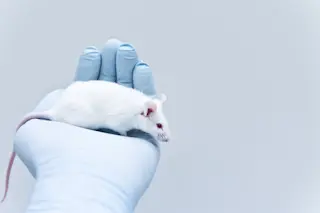New work in Nature Neuroscience offers some promise for understanding cocaine addiction. Researchers genetically engineered mice to produce cadherin, a protein involved in learning that helps strengthen the brain’s neural connections. The mice cranked out this protein in their reward circuits, a brain area that drives us to seek pleasure-inducing experiences and a key component in addiction. After introducing the cadherin-laden mice to cocaine multiple times, experts expected the rodents to crave the drug. Instead, the critters carried on without interest: The excess protein actually clogged their reward center circuitry, preventing the mice from getting hooked. The results point to the importance of biochemistry in addiction.
Building Blocks: The Power of Proteins
Cocaine addiction research reveals that cadherin protein can inhibit cravings by modifying reward circuits in genetically engineered mice.
More on Discover
Stay Curious
SubscribeTo The Magazine
Save up to 40% off the cover price when you subscribe to Discover magazine.
Subscribe














